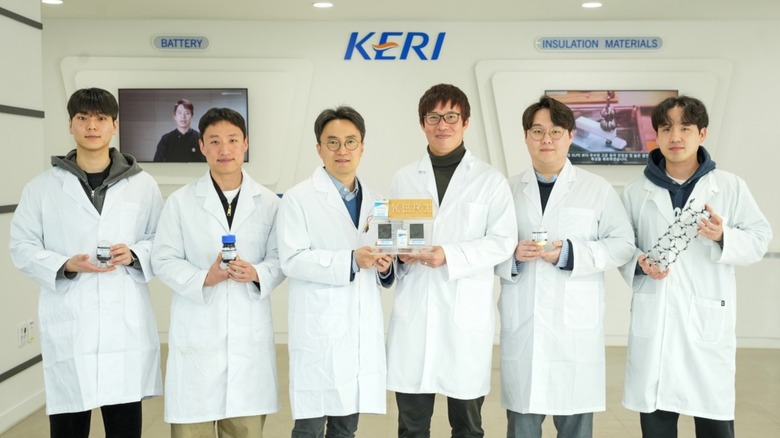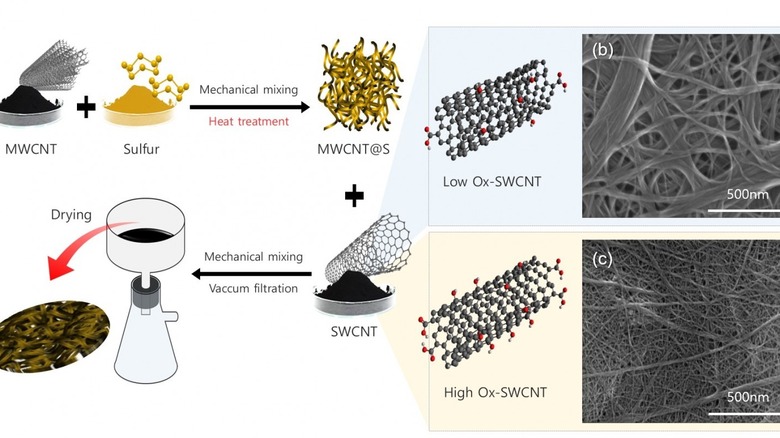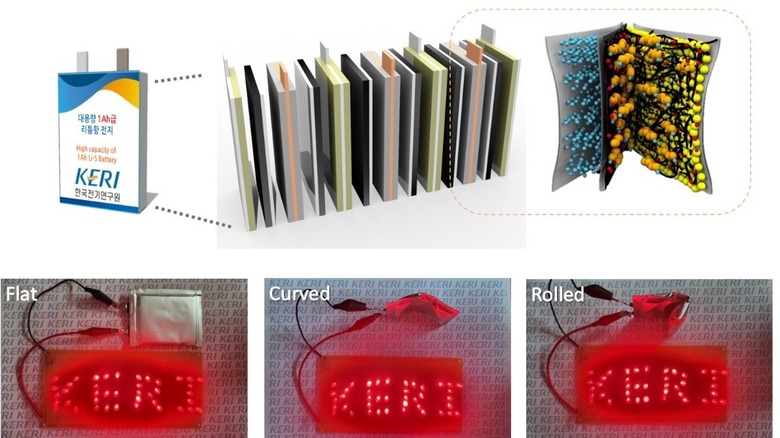A Battery Revolution Is Coming, But It's Not The One You're Thinking Of
In the past couple of years, we have seen a monumental shift in the battery technology employed in mass-market machines and gadgets. In the automobile segment, the likes of Volkswagen and Nissan have made bets on solid-state batteries, while smartphone makers have achieved a dramatic gain in battery capacity with silicon-carbide material in phones such as the OnePlus 13. Yet, there is another innovation that is showing immense promise, one where performance gains are accompanied by the all-too-crucial longevity aspect and energy density.
The breakthrough in question is tied to lithium-sulfur batteries. In a new research published in the Advanced Science journal, researchers from Korea have described the development of large-area, high-capacity battery prototypes that deliver an energy density eight times higher than a lithium-ion battery. But that's not even the most promising part. The researchers from the Korea Electrotechnology Research Institute (KERI) and the National Research Council of Science & Technology created a unique system that controls the dissolution and diffusion of lithium polysulfides.
The latter has been a crucial hurdle in the development of lithium-sulfur batteries on a commercial scale so far. Lithium polysulfides are produced as an intermediary chemical during the charge-discharge process, leading to degradation over time. To combat the problem, the team developed a material called single-walled CNT to stabilize the cathode and reduce the sulfur loss. The researchers were subsequently able to create a pouch-type lithium-sulfur battery prototype with a 1,000mAh battery, nearly one-fifth the size of a typical smartphone battery, but with much higher energy density.
More power and longer life
The team behind the latest research is fairly confident that they have overcome one of the biggest technical hurdles tied to lithium-sulfur batteries. "We have laid the foundational framework that can be applied in actual industrial settings, marking a significant achievement that opens up the practical commercialization potential of next-generation lithium-sulfur batteries," KERI's Dr. Park Jun-woo was quoted as saying.
In a separate research paper that was published in Nature just a day earlier, an international team detailed the development of a lithium-sulfur battery that can retain 80% of its charging capacity even after 25,000 charge cycles. Theoretically, if such a battery were fitted inside an average smartphone that is charged once each day, you won't have to get it replaced for nearly 68 years.
In comparison, the charge retention capacity of an iPhone drops to 80% after 500 cycles, which means if you charge an iPhone once each day, it will require a replacement in roughly 1.5 years. Lithium-ion batteries tend to degrade after 1,000 cycles, so we are looking at a massive 25x gain.
The battery developed by Chinese researchers relied on a glass-like material that contained lithium, phosphorus, and iodine. Notably, the battery not only set a new precedent for electrochemical stability — or in simpler terms, longevity — but also charged rapidly even when exposed to high temperatures. Another notable benefit is that sulfur is abundantly available in nature. Lithium is rarer, comes with a fire hazard baggage, and its mining is linked with a deep environmental impact, in addition to ethical concerns.
Your gadgets are about to change forever
The latest lithium-sulfur battery breakthroughs are quite impressive, especially considering the fact that the teams behind them are eyeing commercialization after successfully creating prototypes. The best part is that the inherent tech opens the doors for deployment in multiple application areas that can fundamentally change how we interact with electronics and electric vehicles.
"Unlike typical rigid-form batteries, our technology offers high energy density and convenient portability due to its flexible and free-standing nature, enabling integration into diverse shapes and sizes for broad applications through various sectors, including mobile smart devices, wearable medical devices, smart textiles, and long-distance cruising electric vehicles," notes the research paper published by KERI experts.
Let's take the example of wearables. An average smartwatch, such as those from Apple, needs to be charged on a daily basis. However, if their batteries switch to the lithium-sulfur tech described in the above research papers, you will only have to charge them once a week. Additionally, these batteries would easily last you a decade without ever struggling with charge retention or performance issues.
A breakthrough like this, will not only enhance the longevity of consumer electronic devices and reduce the e-waste burden, but would also mean you get more value for your investment. It's only a matter of time before brands turn their attention to these developments and move forward with mass manufacturing of these sulfur-driven batteries.


